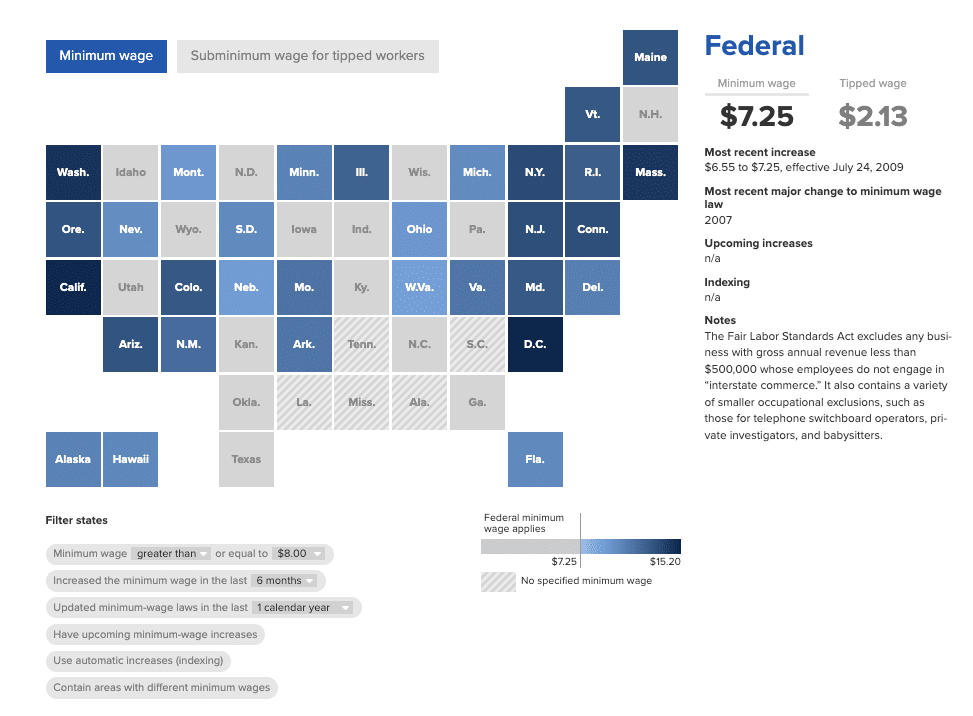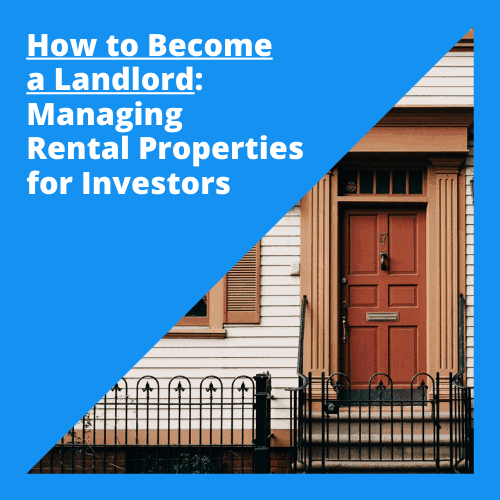Increases in the minimum wage can be good for landlords.
A stand-out benefit is that renters are less likely to default on their monthly rent payments. This equals more financial security for you and your tenants.
But while your tenants may have the ability to afford rent much better than before, you could also raise your rates.
How does minimum wage affect rent prices in the grand scheme of things?
Overview of minimum wage in the United States
According to reports, 26 states will increase their minimum wage in 2022, but unevenly.
For example, the minimum hourly wage in Colorado increased by as little as $0.22 to $12.56 per hour on January 1. More substantially, in Florida, the minimum wage rose from $8.56 to $10.00 per hour this past September.
Here’s a current breakdown of minimum wage in the United States:

Minimum wage has been a topic of discussion for a long time, with proponents on each side arguing that it’s either essential or debilitating to the economy as a whole. Overall, $15 per hour is viewed as the gold standard by most minimum wage increase supporters. So far, the only state that has achieved a state-wide $15 minimum wage is California, which also happens to be one of the most expensive states to rent in.
How a higher minimum wage affects the ability to pay rent
One factor of a higher minimum wage that’s beneficial in the real estate industry is the greater ability of tenants to afford housing costs.
A study published in the Journal of Urban Economics analyzed rent payment data from 14 states from 2000 to 2009. Researchers found that one of the benefits of increasing the minimum wage was that renters found it easier to meet rent obligations. For example, several months after the increase in wages, there were 10.6% fewer rent defaults than in states where wages remained the same.
However, the 2022 study found one caveat — higher minimum wages also resulted in an average rent increase. On average, it took landlords three months to raise rent. However, increasing the price of rent didn’t drive missed payments. According to the data, the boost to tenant incomes was enough to cover the rent hikes.
What does this mean?
It means that an increase in minimum wage equates to an increase in rent price. An upward movement in median rent prices implies that rental properties remain a good investment, despite a changing economy.
How to raise the rent when the minimum wage increases
Suppose you’re a landlord. Of course, you want to maximize your property’s potential if the rental market is “red-hot”. But the conversation about increasing rent can be tricky and stressful to have with your tenants.
Maintaining a competitive rental price is critical to running a successful rental business. However, state laws typically dictate when you can raise rent and by how much. For example, you can specify the period for a fixed rent price in the lease in some cases. Or, if you rent to Section 8 tenants, you can only increase rent annually. But there may be a cap on the annual rent increase you can charge in a rent-controlled area.
However, you cannot raise rent prices in some cases — even if you face increased maintenance and utility costs. Here are a few instances where it’s impossible to increase rent:
- You want to increase rent before the lease ends
- You didn’t give proper notice about the raise in rent
- Local rent control laws cap the allowable rent increase
- There is no provision in the lease for a rent increase
- The increase could be interpreted as retaliatory or discriminatory, making it an illegal rent increase
Let’s suppose you can increase rent — how should you go about it?
First, it’s vital to communicate openly with your tenant. You can explain why the rent increase is necessary and why it’s still competitive with the rental rates in the local area. In general, it’s good practice to keep reasonable, consistent rent prices in line with the local market.
Finally, if you have a rent increase policy in the lease agreement, it becomes much easier to increase rent.
You can start the process of increasing rent by sending your tenants a rent increase notice letter.
What is a rent increase notice letter?
A rent increase notice is a written document or letter where a landlord informs the tenant about a planned change in rent. You must send the rent increase notice at least 30 days in advance if the tenant is on a month-to-month tenancy or a fixed-term lease has provision for it.
Before preparing and sending the rent increase notice letter, get advice from a real estate attorney to ensure compliance with local laws and the terms of your rental agreement.
State laws typically regulate the method of sending a notice of rent increase. It’s standard that the notice is in writing, and you have proof that the tenant received the letter. Therefore, it’s best to send the rent increase letter by certified mail. But in some states, a sheriff must deliver the notice.
Regardless of which state you live in, the letter should always be friendly and courteous. You should include the standard information for any legal document: name, address, and date. However, the rent increase notice should include the rent increase date, the current rent amount, and the increased rent rate.
The amount of notice to give tenants before increasing rent depends on the type of rental agreement and local laws. At a minimum, you must provide official notice at least 30 days before the increase. However, you must wait until the lease expires in some cases before negotiating an increased rental amount with the tenant.
Closing thoughts
We’re set to see a flurry of minimum wage increases across the United States over the next few years. We’ll wait to see the true impact these increases have on the rental market.
Until then, continue to track your market’s data and plan for rent increases in accordance with the market’s movement.
Have you had to raise rent in the past due to minimum wage increases? Let us know in the comments below!
